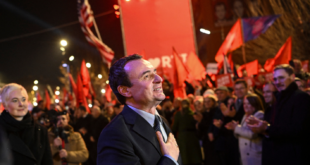Traditional churches and religions communities, headed by the Serbian Orthodox Church [SPC], demand substantial changes to the bill on discrimination that would de facto have the act crucial in defining civic freedoms of marginalized social groups annulled.
The Serbian Government has a commitment to its citizens, its legality and legitimacy derived from their votes and confidence. It must reject every demand made by churches and forward the bill to the Serbian Assembly unchanged.
Churches and religious communities, the biggest and wealthiest nongovernmental organizations that receive considerable funds from the government budget, are entitled to express their convictions freely and seek to influence political decision-making in keeping with the programmes they advocate, heeding the law and constitution.
The SPC’s demand for the government to withdraw the non-discrimination bill from the assembly before debate was a demonstration of political and social power, with Bishop Irinej showing the other, often envious bishops, the extent of his influence over crucial actors on Serbia’s political stage. Now this ambition may not be likeable, but it is understandable and permissible in a democratic community.
What is impermissible in an open and secular society developing on the model of Western democratic countries, is that the government should rescind official decisions that were publicized and forwarded to a legislative authority on a telephone call from the Belgrade Patriarchate or president’s office at Andricev Venac Street, whichever.
The decision is harmful to the executive government’s already tenuous authority. A government without authority will lead the country to political self-will and social chaos and just as important, a government that rescinds its own decisions loses credibility with the public. If the prime minister of Serbia acts on a telephone call from a shadow powerbroker, what kind of signal is he sending tellers, health workers, teachers, and tax inspectors in a society deeply plagued by corruption?
Today, at the anniversary of the slaying of Zoran Djindjic, Serbia’s first democratically elected prime minister, we will be hearing many phases and slogans. But what is behind them? Is the civic courage and political responsibility that guided Djindjic on the path to modernization and integration with political, social, economic, and technological advancement, the model of the incumbent government?
 Eurasia Press & News
Eurasia Press & News



